

the way on Diversity,
and Inclusion
GSMA is a global organisation unifying the mobile ecosystem to discover, develop and deliver innovation
to
business environments and societal change. Download the GSMA’s Diversity Report to learn more Incl us ivi ty in the Workplace www.businessandindustry.co.uk Q3 2023 | A promotional supplement distributed on behalf of Mediaplanet, which takes sole responsibility for its content “Inclusive leadership is about looking inwards.” Addison Barnett, Director of Impact and Major Programmes, Inclusive Employers Page 02
need the skills and knowledge that disabled employees have to offer.”
Page 10
Leading
Equity
The
foundational
positive
“Employers
Diane Lightfoot, CEO, Business Disability Forum
Companies can gain invaluable insights into product development and potential markets through intersectionally inclusive recruitment.
The lived experiences of people from a range of backgrounds and abilities can play an invaluable role in shaping the outlook of organisations. Core to this is intersectionally inclusive recruitment and retention strategies — an approach that acknowledges the intersecting identities of employees and their varied experiences.
Disability campaigner Adam Hyland notes: “Individuals do not fit into one box. We all have diverse identities, made up of many different facets, which all interact in unique ways. Lived experiences are very important to inform change in society.”

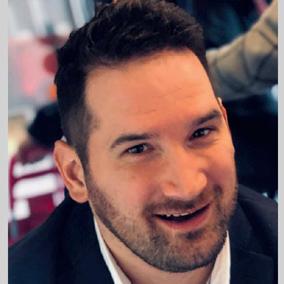
Inclusive recruitment strategies
Hyland is Director of Accessibility and Inclusion at Diversity and Ability, a social enterprise driving intersectional disability and neurodiversity inclusion within society. It offers support to educational institutions, workplaces and international bodies. “When thinking about barriers for disabled people in recruitment, we cannot look at it through one lens,” he insists.
Access to diverse markets
Organisations employing people from diverse backgrounds and disabilities gain a perspective they may not otherwise have. “We know that customers want to see innovation within the organisations they buy services from, so we need different ways of thinking and working, and the lived experience of the whole of society will inform the world we live in,” explains Hyland.
“When organisations have that representation, it will increase the relevance of products and services because the lived experience of the workforce will inform how they improve services and market them to different communities.”
Policies providing support
Hyland believes an inclusive and anticipatory approach to recruitment and retention is invaluable.
“We cannot wait around and suddenly be surprised that some of our workforce are impacted by mental health challenges, for example.
“We have to anticipate that people will face barriers during their working career; and when people join organisations or experience a barrier, they know that they are in an organisation that already has strategies and policies in place to support them and ensure they belong in that organisation. We cannot be reactive anymore to diversity.”
Diversity and Ability is a disabled-person-led organisation. They deliver training and consultancy on how to take an anticipatory approach to inclusion.



Inclusive leadership: the key to workplace inclusion and business success
National Inclusion Week (25 September - 1 October) is an ideal time to reflect on inclusion in the workplace and how we can improve it. With this year’s theme, ‘Take Action Make Impact,’ we can use this time as a springboard to re-engage the workforce in inclusion.
WRITTEN
BY Addison Barnett
of Impact and Major Programmes, Inclusive Employers
Director
Inclusive leadership, no matter what level, can increase team performance by up to 17%, show a 20% increase in decisionmaking quality and increase collaboration by up to 29%.1 For Gen Z, a company’s prioritisation of inclusion and diversity is expected.2 The business case is clear: to succeed in an increasingly volatile world, organisations need to make inclusion a strategic business priority. And this requires leadership accountability.
Leadership teams must be accountable for inclusivity
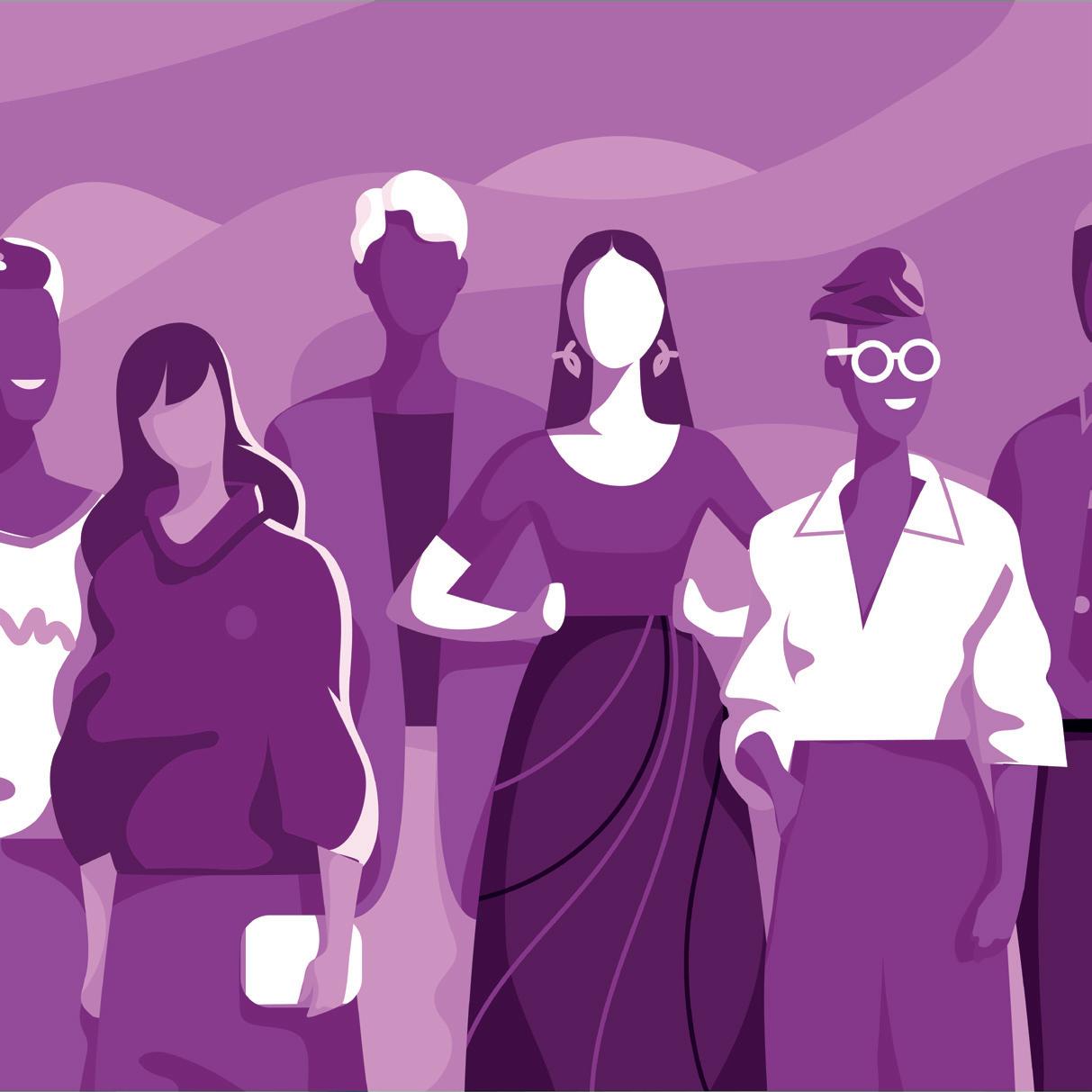
For inclusion to become part of the DNA of any organisation, leaders need to model behaviours that drive inclusion and challenge the status quo.
What skills does an inclusive leader need?
Inclusive leadership is a way of being, not a list of actions: it’s about who you are at work, not just what you do. Inclusive leaders don’t just appear out of nowhere; they take time to reflect on their behaviours and style. They consider areas for growth, take time to learn, and invite feedback from all those around them.
The four dimensions of an inclusive leader:
1. Courage: stepping up and stepping in; challenging ourselves and others, and pushing through the discomfort.
2. Emotional intelligence: monitoring emotions and using this to guide thinking and actions.
3. Curiosity: maintaining an open mind to new experiences; developing a growth mindset; challenging our assumptions and always learning.
4.Self-awareness: awareness of our strengths, weaknesses, privilege, and power.
At its core, inclusive leadership is about looking inwards first. What development do you need as a leader, and how can you bring your organisation along with you?
In my experience, the best inclusive leaders take ownership of inclusion, set it as a strategic business priority, and are humble enough to enlist experts and specialists to ensure the desired impact is made. So, I leave you to ponder this: what action can you take to drive inclusivity at work?
References
1. https://www2.deloitte.com/us/en/insights/deloittereview/issue-22/diversity-and-inclusion-at-work-eightpowerful-truths.html
2. https://www.forbes.com/sites/ forbeshumanresourcescouncil/2023/09/05/building-adiverse-equitable-and-inclusive-culture-for-gen-z/
@BusinessandindustryUK
@MediaplanetUK Please recycle
Business Development Manager: Jack Adamson Managing Director: Alex Williams Country Manager UK: Ellie McGregor | Head of Print & Design: Thomas Kent Designer: Aimee Rayment Content Editor: Angelica Hackett O’Toole | Head of Digital Operations: Harvey O’Donnell Paid Media Strategist: Jonni Asfaha Social & Web Editor: Henry Phillips Digital Assistant: Carolina Galbraith Duarte | All images supplied by Gettyimages, unless otherwise specified | Contact information: uk.info@mediaplanet.com or +44 (0) 203 642 0737
Project Manager: Sophia Rossi sophia.rossi@mediaplanet.com
02 MEDIAPLANET A PROMOTIONAL SUPPLEMENT DISTRIBUTED ON BEHALF OF MEDIAPLANET, WHICH TAKES SOLE RESPONSIBILITY FOR ITS CONTENTS READ MORE AT BUSINESSANDINDUSTRY.CO.UK
INTERVIEW WITH Adam Hyland Director of Accessibility and Inclusion, Diversity and Ability
WRITTEN BY Mark Nicholls
Why an inclusive organisation has greater access to diverse markets
Paid for by Diversity and Ability
Fostering a healthy workplace: why everyone should be seen
At Bupa, our people are our most valuable asset. There are 23,000 of us in the UK, providing high-quality services to our patients, residents and customers every day. Our people must reflect the diversity of our customers to serve them best. This helps us deliver our purpose; helping people live longer, healthier, happier lives and making a better world. We have long lived by the mantra that ‘everyone is welcome’ and consistently feature among the most Inclusive Top 50 UK Employers. Becoming the Official Healthcare Partner for ParalympicsGB encouraged us to take this commitment further, within our walls and in wider society.


We do better when we feel included A supportive team helps us achieve our goals, and our Bupa mental health experts tell us that being in a team can boost happiness and confidence, reduce stress and even improve cognitive health. However, our research showed that three in four disabled people (72%) have felt excluded in the past year.1 This is concerning and demonstrates the importance of breaking down stigmas and barriers in society.
Supporting disabled people in the workplace Employers must look at inclusion in the workplace. Worryingly, two in five people with less visible disabilities have avoided disclosing them at work for fear of reprisals, leading to

presenteeism and poor physical and mental health.2
As employers, we must support our people. A happy, healthy, productive workforce is essential for business performance, productivity and talent retention. People are at their best when they can bring their whole selves to work, and it’s up to businesses to embed inclusion and celebrate differences in their workplace.
Making individual adjustments
This means ensuring that no experience is invisible. We’ve audited our physical spaces, language and culture and have increased our support for colleagues who are neurodiverse, LGBTQ+ or going through bereavement or pregnancy loss.
We have also reviewed our healthcare benefits for our people to make them inclusive, accessible and tailored — particularly for the 15,000 people working in our care homes, dental practices and clinics. This means greater access to mental health and physiotherapy support, GP appointments in the evenings and weekends, vital cancer checks and menopause support.
Advancing diversity and inclusion in the workplace is essential to breaking down barriers in society. With less than a year to go until our Paralympians take the stage at Paris 2024, we must continue to help everyone feel heard and seen and part of the wider team.
Why a good DEI strategy benefits the workplace, product development and society
References
1.https://www.bupa. com/news/pressreleases/2023/ belonging-to-a-teamboosts-happiness
2.https://www.bupa. com/news/pressreleases/2022/ employees-avoid-tellingemployers-about-lessvisible-disabilities


Effective diversity, equity and inclusion strategies support product development and a closer affinity with customers through a workforce that reflects the wider community.
Diversity, equity and inclusion (DEI) policies embedded within a business organisation can deliver lasting benefits for companies. HR expert Rachel Duncan explains: “Having a workforce that represents the communities we service is critical.”

Overarching DEI business strategy
For data and analytics company Experian, DEI is at the core of its activities — internally and externally. “Our differences are what make us stronger, and we need to welcome people from all backgrounds,” says Duncan, the company’s UK and Ireland Chief People Officer.
The company endeavours to make credit lending simpler, faster and safer for consumers and businesses; empower consumers to improve their financial lives; offer identity and fraud solutions; deliver data and analytics products for organisations to make good decisions; connect businesses to their audiences. “Core to our overarching strategy is being a force for inclusion that drives financial power for all,” she adds.
Holistic inclusion and workplace wellbeing
DEI at Experian supports financial inclusion for all; increases diversity through the processes and programmes put in place; and prioritises actions to create a sense of inclusion and belonging. Leadership programmes incorporate DEI content and include working with external parties, while an early careers programme ensures representation with a 50/50 gender intake of graduates.

Wellbeing in the workspace is paramount — covering physical, emotional, mental and financial health. The company has 400 mental health first-aiders to support colleagues. It also harnesses data to better understand its workforce demographic. The ‘Count Me In’ initiative tracks recruitment, retention and performance and sits within its DEI ethos.
Benefits of employee resource groups
Employee resource groups (ERGs) have a pivotal role in ensuring representation across the organisation. There is a pride network (LGBTQ+); women in Experian, ethnicity groups; and menopause, disability, mental health, working families, veterans ERG and a Christian group.
“They are key to how we create and foster a culture of belonging for our people,” says Duncan. As well as shaping internal policies, ERGs collaborate with product creation and development to understand how they may be received by segments of society.

Improving accessibility for society
In collaboration with Experian’s disability ERG, it’s Support Hub is a consumer-facing solution that improves accessibility to banking and utilities for people with disabilities or additional needs. DEI within Experian is reflective of society. “It is an asset that taps into diversity and a sense of inclusion to shape our policies, decisions and the products we create,” concludes Duncan. “That will continue in the future as the customer, consumer and personnel landscape evolves.”
A PROMOTIONAL SUPPLEMENT DISTRIBUTED ON BEHALF OF MEDIAPLANET, WHICH TAKES SOLE RESPONSIBILITY FOR ITS CONTENTS READ MORE AT BUSINESSANDINDUSTRY.CO.UK 03 MEDIAPLANET
INTERVIEW WITH
Rachel Duncan
Chief People Officer, UKI, Experian
WRITTEN BY
Find out more at experian.co.uk
Mark Nicholls
Paid for by Experian
Find out more at bupa.co.uk/ paralympics Paid for by Bupa
A workplace where everyone can shine is crucial to building business success and retaining critical talent.
WRITTEN BY Carlos Jaureguizar CEO, Bupa Global & UK
Differences in beliefs, values and behaviours can cause misunderstandings and conflict. Without the right tools and mental models, it can be challenging to reap the benefits of diversity.
Many of us have heard that diversity leads to creativity, innovation and better overall outcomes for teams and organisations. However, that isn’t always the case. Homogenous teams often outperform diverse ones.
What is truly inclusive behaviour?
We often thrive when we feel that we belong — without having to compromise our own uniqueness. In short: we are motivated and perform better if we feel included. But promoting inclusive behaviour is easier said than done.
Applying the research-based cultural intelligence framework allows us to navigate this tricky terrain. Cultural intelligence (CQ) is the ability to relate and work effectively with people who are different from us. Its basic principle can be explained using the analogy of the ‘Golden’ vs. the ‘Platinum’ rule.
Whereas the ‘Golden Rule’ states that we should treat others the way we want to be treated, the ‘Platinum Rule’ recognises the importance of treating others the way they want to be treated. This is the route to true inclusion.
Elements of cultural intelligence

CQ includes four important elements: Drive (motivation); Knowledge (understanding); Strategy (planning/awareness); and Action (behavioural flexibility).
By developing their CQ muscles, diverse leaders, teams and employees can learn to become more motivated, knowledgeable, strategic and ultimately adaptable in their interactions with each other. If you are a leader or anyone who wants to help foster inclusion in their own spheres of influence, the following tips can help you get there.
• Recognise that diversity alone is not enough. Take a closer look at your teams; how effective or in sync are they?
• Benchmark the CQ of your employees, but don’t stop there; focus next on development.
• Utilise training programmes that focus on practical strategies and application — not simply understanding and awareness.

• Invest in the professional development of your employees and don’t hire for ‘fit.’ Instead, hire to ‘add’ whatever is missing from your team.
• Reward culturally intelligent behaviour. Praise positive actions and promote curiosity.
WRITTEN BY Keyla Waslawski Senior Vice President, Cultural Intelligence Centre

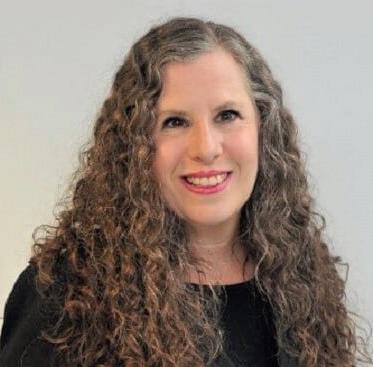
Why disabled people need to get a fair shot in the workplace
Today, only 25% of blind and partially sighted people of working age are in employment, compared with over 80% of the general population. Similarly, very few blind and partially sighted people sit in leadership roles.
As the UK’s only blind female CEO, a position I hold with immense responsibility, it’s clear to me that something’s got to give. I registered blind in 2008. Shortly after, I was also diagnosed with ADHD, so my journey has been far from easy. However, I’d do it again in a heartbeat, as it has led me to the helm of an organisation doing the DEI work that will pave the way for disabled leaders to be the norm.
Going blind and the challenges it brings
Going from being a sighted person one day to a blind person the next naturally had its practical complexities, but I was overwhelmed by the psychological impact. The labels ‘blind’ and ‘disabled’ consumed my identity. When the discrimination began, it confirmed my worst fears. I was lucky enough to have a supportive network around me and the determination to go on, but it shouldn’t have been this way.
Time to close the disability employment gap
Currently, the disability employment gap in the UK is 30%, and it has been this way for over a decade. Only 50% of disabled people are in employment. That’s 4.79 million people employers are missing out on. For those in employment, many organisations find it difficult to navigate the world of reasonable adjustments and on-boarding. They frequently find themselves in a dilemma about how to treat their
disabled employees. Wanting to do the right thing, employers somehow forget that disabled people are just people trying to get on with their lives and be happy.
Having an inclusive strategy and culture
Of course, although the world of disability is complex — with a multitude of different disabilities, each falling within a spectrum — the place to start is always the same. See the person as an individual, and make sure that the culture, leadership and resources are in place for them to thrive. It should be no different than for any other employee.
A diverse workforce and inclusive culture, where everyone feels they’re contributing and have a true sense of belonging, is the goal of all DEI work. Employing disabled people will not only provide organisations with an untapped talent pool but it will also offer diversity of thinking and experiences.
WRITTEN BY Sandi Wassmer Chief Executive Offi cer, ENEI
04 MEDIAPLANET A PROMOTIONAL SUPPLEMENT DISTRIBUTED ON BEHALF OF MEDIAPLANET, WHICH TAKES SOLE RESPONSIBILITY FOR ITS CONTENTS READ MORE AT BUSINESSANDINDUSTRY.CO.UK
Paid for by Cultural Intelligence Centre Scan the QR code for a free CQ assessment
Cultural intelligence: a valuable tool that can foster inclusion effectively
Only 50% of disabled people are in employment. That’s 4.79 million people employers are missing out on.
Proactive steps in ensuring DEI in the workplace will attract and retain talent
The global industry association representing mobile network operators highlights how effective data collection has enabled it to make significant advances in diversity and inclusion within the organisation.
Data is a crucial component in delivering a diverse and inclusive workplace. Louise Easterbrook, Chief Financial Officer at GSMA, believes it helps to effectively benchmark and monitor progress in the diversity, equity and inclusion (DEI) space. She also insists that data on gender, pay and ethnicity must be handled sensitively and presented with transparency.
Utilising data to become more diverse
At GSMA, which represents mobile network operators globally and has around 600 employees, DEI is embedded throughout the organisation. Data on gender and ethnicity has already highlighted DEI success. Findings in the association’s latest diversity report, for example, reveal a 51–49% male/female split in the top leadership posts, up from 23% female representation in 2016. “We are pleased with progress around gender in terms of pay, promotions and representation at senior levels in the organisation,” adds Easterbrook.

Inclusive hiring and opportunities
DEI in recruitment is underpinned by balanced shortlists for senior roles, gender-neutral job descriptions with the requirement for a degree removed, training for managers in recruiting inclusively and not asking candidates for their current compensation details. In the London office, she points to 49% of new starters coming from ethnic
Inclusivity in action: how to build a railway for all
As we build the UK’s new high-speed railway, it’s essential we consider, involve and understand all groups of people it will serve.
minorities, and a focus for the year ahead is driving up ethnic minority representation at more senior levels.
“As a global association, if you have a narrow perspective, you would not be serving members very well. We know we can do our job better if we have a diverse workforce,” insists Easterbrook. They are also working with an organisation to provide apprenticeships to enable access to new talent in the tech industry, emphasising the importance of people progressing with the organisation at all levels.
Thinking with different perspectives
Staff mindset is an important aspect of DEI. “We ask them to be curious when they think about how they act and behave; and with the contributions they are making, they should be thinking of it not just through their own perspective but how someone else with a different background might be interpreting that.”
The company also has other inclusivity elements such as the ‘Let’s Talk’ sessions of group discussions on topics such as caring for dependents, grief, mental health and neurodiversity. Other initiatives include a menopause policy, a parental return to work programme and a parents and carer network and compassionate leave guidelines. To deliver value to its members, Easterbrook emphasises that DEI at GSMA is about employees being seen, heard and valued as they are.
WRITTEN BY
Dame Judith Hackitt
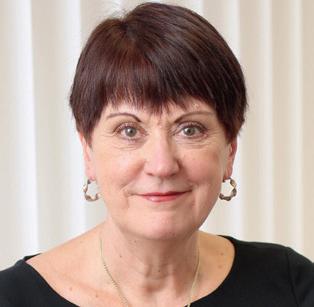
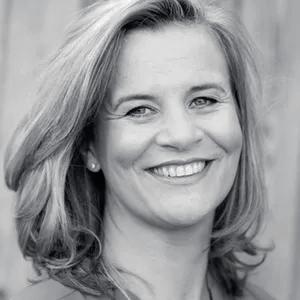 Non-Executive Director, HS2 Ltd
Non-Executive Director, HS2 Ltd

One of the great things about rail is that it is accessible to everyone, whatever your age, social group or background. It’s also a clean and green way to travel. We are building a new, zerocarbon, high-speed railway network for the future: High Speed Two (HS2).
Construction careers for everyone
Our approach to inclusivity is embedded in how we work as we design, refine and build the new railway. Inclusivity is everywhere at HS2 — in our offices and on our sites, making sure that our workplaces are welcoming and suitable for employees

from all walks of life.
A career in construction can be for everyone. We are demonstrating that by changing outdated perceptions and recruitment practices, and through simple measures like offering flexible working patterns and well-fitting PPE. We are creating an environment that encourages less-represented groups — including women, members of the LGBTQ+ community, people with disabilities and the previously unemployed — to become part of a richer, more talented workforce. This approach is bearing fruit; today, over a third of our workforce is female, and our approach is making a
difference to our supply chain where over 28% are female — well above industry averages. We are the first organisation in the UK to achieve the Clear Assured Platinum Standard — an accreditation designed to recognise exceptional commitment to equality, diversity and inclusion.
Ensuring accessibility in travel
Anticipating diverse needs is a key part of the work of our design teams. Recently, we took students from a local school for deaf children on a train journey around the West Midlands, finding out about the barriers they faced while travelling. Gathering this feedback prompts us to think about how destinations will be displayed and how journey progress is communicated on our new high-speed services, alongside other measures to ensure accessibility.
Inclusivity across the organisation
Inclusivity is not about equality — it’s about equity. Striving for equity allows us to put in place measures that support everyone, whether that is better-fitting safety clothing for women, small changes to the workplace for a neurodiverse employee or anticipating and catering to all passengers’ accessibility needs on our trains and in our stations. By embedding diversity and inclusivity as we design and build HS2, we can build a railway that truly is for everyone.
A PROMOTIONAL SUPPLEMENT DISTRIBUTED ON BEHALF OF MEDIAPLANET, WHICH TAKES SOLE RESPONSIBILITY FOR ITS CONTENTS READ MORE AT BUSINESSANDINDUSTRY.CO.UK 05 MEDIAPLANET
INTERVIEW WITH
Louise Easterbrook CFO, GSMA
Find out more at hs2.org.uk
WRITTEN BY Mark Nicholls
Paid for by HS2
ImageprovidedbyHS2 Find out more at gsma.com
Paid for by GSMA
Temi Awofala, Interim UK Head D&I (Summer 2023) and Ama Ocansey UK Head of D&I at French bank BNP Paribas (BNPP), discuss the organisation’s approach to DEI and some of its achievements to date.
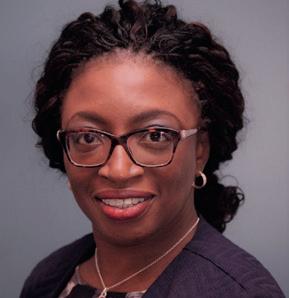
What DEI strategies do you follow?
Our DEI efforts are focused on gender, LGBTQ+, disability and race and ethnicity. Each element has a set of initiatives with targets and build programmes to support our people and our goals. The DEI team provides thought leadership, visionary guidance and strategic direction.
What are your main DEI achievements?
Ensuring employees of different backgrounds feel a sense of connection, belonging and shared purpose is essential. Key achievements include: over 155 colleagues have attended our successful female career development programme; hosting inclusion days; annual celebration of Black History Month; creating a Gender Transition guide and allyship guide; being accredited a Level 2 Disability Confident Employer; enhancing the collective voice and visibility of our employee networks.
What are the benefits of greater diversity in the workplace?
Studies consistently show that diverse teams make better decisions and connect more easily to clients drawn from across society. That’s the hard commercial rationale but, of course, fostering a culture of acceptance and inclusion simply makes the workplace a better place to be.
How do you see the interaction between DEI and sustainable investing?
Sustainability is core to our strategy globally, and there is an important intersection between the open, innovative and inclusive approach necessary for successful DEI and the tools needed to rebuild finance for the future.
What workplace trends have you seen in recent years to improve diversity?
Hybrid or flexible working is the obvious one; enabling people to work from home at least some of the time opens the door for colleagues who might have struggled with a daily commute in the past. There are challenges; it can be more difficult to manage teams, but overall, it is proving to be a huge DEI boost.
What role can banking play in building greater diversity?
BNP Paribas has a long history of working closely with communities to support their economic, social and cultural development. We do this through several initiatives promoting financial and social inclusion, serving vulnerable clients, supporting microfinance institutions and partnering with organisations to tackle critical social issues.
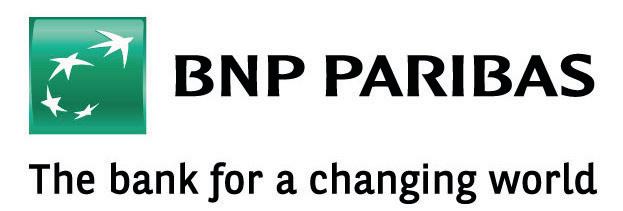
The Diversity & Inclusion Team, BNP Paribas
WRITTEN BY Mark Nicholls
This article is co-authored with Head of Diversity & Inclusion Ama Ocansey
The tech industry has an ageism problem. Age is often overlooked in diversity and inclusion policies, but there are ways for the industry to change this.
The tech industry has a particularly harsh view of age compared to other industries.
WRITTEN BY Karen Blake COO, Tech Talent Charter

A 2019 survey by CWJobs found that the average UK tech worker starts experiencing ageism at the tender age of 29 — nearly 10 years earlier than the national average. By the time tech workers reach their late 30s, a third say they are worried about losing their jobs due to their age.
Why ageism is prevalent in tech Experts suggest different reasons why the tech sector leans toward younger workers. Factors such as higher costs of hiring and retaining experienced talent during the economic downturn; the willingness of younger workers to take lower salaries in exchange for equity; younger tech recruiters unconsciously preferring people of a similar age to themselves; the cultural rub of older employees reporting to younger bosses. These have all been raised as part of the issue.
How are tech companies being age-inclusive? With so many businesses clamouring for experienced tech talent, we must ensure people at all life stages can find a long-term career in the tech industry, and companies are finding novel ways to make their position clear.
Five age-friendly workplace benefits
1. Grandparental leave to spend time with new grandchildren and supporting families.
2. Upturnships: internships for experienced workers in later stages of life who need different types of support and work lifestyle to new graduates.
3. Phased retirement: offering reductions in work hours over time to gradually step back from work, enabling employees and employers to adjust to the transition.
4. Shadow boards of younger employees to contrast boards composed of older employees bring a diversity of thought to company strategy, particularly in key areas like talent planning and employee development.
5. Future planning programmes: including specialist financial guidance; lifestyle coaching; flexible working; transition planning and wellbeing information for employees transitioning through different life stages.
With so many benefits to engaging an older workforce, companies would do well to ensure their company culture is ‘rated U’ — or suitable for all.
06 MEDIAPLANET A PROMOTIONAL SUPPLEMENT DISTRIBUTED ON BEHALF OF MEDIAPLANET, WHICH TAKES SOLE RESPONSIBILITY FOR ITS CONTENTS READ MORE AT BUSINESSANDINDUSTRY.CO.UK
Ageism in the tech industry: how to become an age-friendly employer
An effective DEI strategy that includes all employees — and the community
Paid for by BNP Paribas
Find out more at group.bnpparibas
INTERVIEW WITH Temi Awofala
WRITTEN BY Ali Beresford Inclusion and Diversity Manager, Nestlé UK and Ireland

How an inclusive culture that benefits the workforce translates to positive change
Respect is at the heart of our culture at Nestlé, and culture is incredibly important to us. If everyone feels respected and is thriving at work, we can keep making a positive difference.
We expect everyone at Nestlé to demonstrate respect and behave inclusively. It’s who we are. Fostering a positive culture wouldn’t be possible without everyone in the business taking action. Our networks are instrumental in guiding Nestlé towards an inclusive environment, where each person can thrive. We believe everyone deserves to feel safe, respected and included as their authentic selves.
Colleague networks supporting communities
We have six colleague networks, each of which has a Board-level sponsor. They work hard to hold Nestlé accountable for our commitment to diversity and inclusion, educate and raise awareness and support the communities they represent.
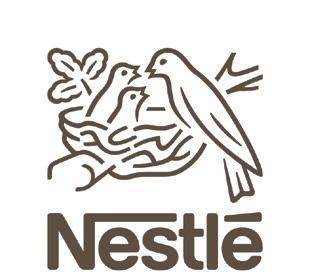
Our networks cover gender equity, parenting, disability, LGBT+, women in operations and eradicating racism. The Gender Equity Network recently worked directly with senior leaders to continue conversations on gender bias to promote inclusive leadership.
Following feedback from employees, we have introduced new policies and guidance such as gender-neutral family leave and flexible Bank Holiday exchange. Our Eradicating Racism Network hosted an open day to inspire students from disadvantaged socioeconomic and ethnically diverse backgrounds to provide career inspiration in the industry.
Organisation-wide effort to create societal change
As well as the organisational and societal changes networks bring about, there are real day-to-day benefits for members. The sense of community is powerful; not to mention the opportunity to engage with senior members in our business as we evolve the way we do things.
Rochelle Hewitt, a co-chair of Nestlé’s Eradicating Racism Network, says: “I’m proud of the strides we have taken to challenge and educate colleagues to accelerate inclusion and create a diverse and anti-racist organisation.
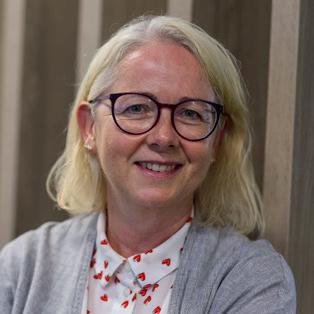
“The support we’ve had has been crucial in making sure our voices are heard through all levels of the organisation. With our shared determination and passion, we consistently set and surpass goals that allow us to influence the wider Nestlé business.”
Where does the next KitKat or jar of Nescafé come from? How do we accelerate our sustainability work and protect our planet for future generations? Without our people, their ideas, their passion and their individuality, there is no next KitKat — and no progress on the sustainability agenda. If we create a respectful, inclusive culture in which everyone at Nestlé can bring their best and full selves to work, we can use our scale as an incredible force for good.
Embedding equality, diversity and inclusion (EDI), whatever sector we’re in, is critical – but knowing where to start can be daunting.
Katy Deacon, Institution of Engineering and Technology (IET) Trustee and Equality, Diversity and Inclusion (EDI) Working Party Chair, says: “I’ve seen first-hand how slow companywide EDI initiatives can be to get moving, often because people think it isn’t business-critical or relevant to them. If the organisation values its people, it can be incredibly liberating and engaging if people are asked to make their own impact.”
Scaling up diversity in engineering
The engineering sector is no different — with women only making up 16.5% of the UK engineering workforce1 and only 3 in 10 engineering organisations stating they have taken action to improve the diversity of their workforce.2 Partners, customers and
wider industry often say they want to do more but worry that change requires large-scale policies and buyin, which often acts as a blocker to progress.
However, starting small can set organisations up for success. “It could be picking accessible venues, including speakers happy to speak about their disability or hearing all voices in a meeting. Little actions go a long way and can be transformative,” insists Deacon. “I’m proud that we view EDI as more than a tick-box exercise and, rather, a critical area to embed thoroughly in every area of our organisation.”
Importance of championing EDI
The IET is a multidisciplinary professional engineering institution, working to engineer a better world by

inspiring and informing communities. EDI is critical to making that a reality. The Institution has a long legacy of promoting an inclusive profession, from its Young Woman Engineer of the Year Awards to its Celebrating Impact campaign. It has also made great strides in championing EDI in all areas of the organisation, establishing networks and committees and allcolleague training. However, there’s always more that can be done.
Sharing knowledge and resources
The ‘Inclusive thinking? Pass it on!’ campaign inspires those working in engineering and technology — whether in HR, operations, technical or C-suite roles — and provides a platform for best practices. Dr Laura Norton, IET Head of Equality, Diversity and Inclusion, elaborates: “We have a responsibility but also an opportunity to disseminate the great work already going on in our sector but also to support those just starting out on their EDI journey.”
Organisations can’t become the blueprint for inclusion overnight. Dr Norton insists: “There’s huge value in leading by example and creating robust policies and processes, but becoming more inclusive can start simply with small but meaningful actions.”

A PROMOTIONAL SUPPLEMENT DISTRIBUTED ON BEHALF OF MEDIAPLANET, WHICH TAKES SOLE RESPONSIBILITY FOR ITS CONTENTS READ MORE AT BUSINESSANDINDUSTRY.CO.UK 07 MEDIAPLANET Scan the QR code to find out more Paid for by The IET
Why starting small can build up to EDI success in any sector
References 1. Engineering UK, 2022 2. IET Skills and Demand in Industry Survey, 2021
WRITTEN BY Katy Deacon Trustee, Institution of Engineering and Technology (IET)
Scan the QR code to find out more.
WRITTEN BY Dr Laura Norton Head of Equality, Diversity and Inclusion, Institution of Engineering and Technology (IET)
Paid for by Nestlé
Advertorial
As well as the organisational and societal changes networks bring about, there are real dayto-day benefits for members.
How an ethnically diverse board could help optimise your bottom line
Despite progress, more work is needed to realise the benefits of boardroom diversity in UK businesses.
Boards are increasingly under pressure to be more agile, flexible, and able to detect emerging risks and opportunities in a rapidly changing economy. Thus, diverse voices in the boardroom have never been more important. In a 2019 survey of our members, two-thirds agreed that a diverse board is a strong driver of business efficacy.
Recent years have seen significant progress in improving ethnic diversity on boards. By the end of last year, 96 FTSE 100 companies had at least one ethnic minority director, compared with 47 in 2016.1

Use data to build on progress
As with most things in business, data is essential to good decision-making. As the adage goes: ‘what gets measured gets done.’
One-size-fits-all targets are rarely the answer to building a diverse board, but ambitious targets based on the specific circumstances of a business, accompanied by accountability structures for those targets to be met, are crucial to making progress.
How to recruit a diverse board
An essential step is to make the application process open. Proactively engage with diverse networks, rather than relying on existing board members’ personal and professional networks.
Where recruitment agencies are used, ensure they source candidates who reflect the diversity of the talent pool; this key deliverable is vital. Another impactful step is to broaden the range of professional backgrounds considered for board member positions.
Scrutinise your executive board
Building a pipeline of diverse talent will also help board recruitment in the long term. The recruitment business, PageGroup, for instance, has created an executive shadow board to scrutinise the executive board’s agenda. This not only brings contributions that reflect the diversity of its employees and customers but also provides individuals from underrepresented backgrounds with valuable board experience.
More widely, equity, diversity, and inclusion (ED&I) issues need to be driven from the top as a board-level topic and not one consigned to HR, to ensure it receives the focus and resources needed to achieve cross-organisational change.
Equally important is clarity around the internal case for change – seeing ED&I as a means to becoming an organisation better able to serve its employees, shareholders, and other stakeholders, rather than as a tick-box mechanism, is the foundation for realising the gains that come from building a diverse and inclusive business.
WRITTEN BY Alex Hall-Chen Principal Policy Advisor, Institute of Directors

08 MEDIAPLANET A PROMOTIONAL SUPPLEMENT DISTRIBUTED ON BEHALF OF MEDIAPLANET, WHICH TAKES SOLE RESPONSIBILITY FOR ITS CONTENTS READ MORE AT BUSINESSANDINDUSTRY.CO.UK References 1. Improving the Ethnic Diversity of UK Business An update report from the Parker Review David Tyler The Parker Review Committee March 2023
How to ensure DEI strategies work for each region in a multinational workforce


Recognising and celebrating differences in a large global workforce is pivotal in helping a multinational company effectively meet its diversity, equity and inclusivity ambition.

As a global pharmaceutical company with around 50,000 personnel, there is acute awareness within Takeda of ensuring diversity, equity and inclusivity (DEI) synchronicity across regions and countries. The company’s DEI values are central to its corporate strategy — in terms of both its patient inclusivity and people experience — and sensitively refined to meet the needs of specific demographics. Our values, which include a commitment to integrity and respect for all individuals, have always been embedded in our practices throughout our 240+ year history, making DEI a core priority for our people.

Adapting to each demographic Afrene Jeffers Campbell, vice president and head counsel for international employment, explains how the DEI ambition is pulled through the business in different ways while underlining the importance of synchronicity between global, regional and local programmes. “The way to manage it is to celebrate the differences,” she says. “Philosophically, the direction comes from the centre in terms of
what the organisation stands for — but recognising those differences in countries is important. By collecting information on demographics, we can focus on core areas we might use, globally and supplementally, that are of relevance in a particular country.”
Global employee resource groups
With a Global DEI Council and Employee Resource Groups (ERGs) of like-minded individuals, they meet to challenge the business, identify growth or development opportunities and seek to broaden the DEI perspective. Their 11 ERGs include the Black Leadership Council; Building Asian Leaders; abilities forum, Enable; Faith at Work; Gender Parity Network; early careers group, Ignite; Hispanic network Impacto; crosscultural network Mosaic; Veterans’ Group; and Take Pride (LGBTQIA+ inclusion).
DEI also extends into communities by putting patients first; representing, understanding and supporting under-served communities to address unmet healthcare needs, including improving access to clinical trials. The company has an additional sustainable societal impact pillar, which includes applying diversity to its supply chain

and procurement process, which helps diversify the talent pools in the communities it serves to enable long-term positive impact across our healthcare ecosystem.
Sense of belonging

Having a sense of belonging is important, explains Campbell, who leads the International Employment Legal Group. “It encourages people to stay in an organisation. Part of that is understanding who our people are, so we have policies and programmes that reflect them and meet their needs.”

A voluntary ‘Self ID’ programme, inviting employees to identify how they recognise themselves, has been launched to deliver a better understanding of their people.
Listening to employees
Data is also highlighting how Takeda is performing on gender balance in leadership roles, while employee experience surveys and external accolades also benchmark progress. Emphasising the role of legal as an enabling function in DEI, she adds: “The biggest enabler for our DEI programmes is a positive and open mindset and a willingness to listen to others and learn.”
A PROMOTIONAL SUPPLEMENT DISTRIBUTED ON BEHALF OF MEDIAPLANET, WHICH TAKES SOLE RESPONSIBILITY FOR ITS CONTENTS READ MORE AT BUSINESSANDINDUSTRY.CO.UK 09 MEDIAPLANET Find out more at jobs.takeda. com/diversity
Paid for by Takeda
INTERVIEW WITH
Afrene Jeff ers Campbell
Vice President and Head Counsel
- International Employment, Takeda
WRITTEN BY Mark Nicholls
One-size-fits-all targets are rarely the answer to building a diverse board.
Disability inclusion at work: how to adjust to employee needs effectively
More
WRITTEN BY Diane Lightfoot CEO, Business Disability Forum

Sometimes, the language we use doesn’t help. Terms such as ‘reasonable adjustments’ (the UK Equality Act 2010 terminology) can be confusing and make disability inclusion seem more complicated than it needs to be. The US wording — accommodations — goes further with its connotations of doing someone a ‘favour,’ but why wouldn’t you want to give everyone the tools and environment they need to do a brilliant job for you?

Workplace adjustments for disability inclusion
Workplace adjustments are often very simple changes that disabled people may need. They can reduce or remove the barriers disabled people experience in their jobs. Adjustments can be the difference between a disabled employee thriving, just surviving at work or falling out of the workplace altogether.
These include everything from flexibility over hours and location to time off for medical appointments, as well as ergonomic equipment and assistive technology. It’s worth remembering that preCovid-19, home working was the most frequently requested workplace adjustment. It enabled people to manage fatigue, pain or an inaccessible or stressful commute, for instance.
People with disabilities need workplaces to adjust Making adjustments is the right thing to do, but Business Disability Forum’s recent ‘Great Big Workplace Adjustments Survey 2023’ shows that only 10% of disabled people find it easy to get the adjustments they need.
For one in eight, getting adjustments takes over a year; and half of disabled employees still experience disability-related barriers even after adjustments are made. These include harassment and bullying, inaccessible spaces and limited promotion opportunities.
What can we do to create truly inclusive workplaces?
Rethink what disability inclusion at work looks like. Inclusion should not be the responsibility of just one department or team. It must be built into every aspect of an organisation’s culture, policies and premises design — and driven from the top. Making adjustments to someone’s discrete job is important, but can you really say your workplace is inclusive if your career development programme is not accessible — or if people cannot move around the building without assistance because the keypad on the lift is too high? Employers need the skills and knowledge that disabled employees have to offer. Disabled employees need inclusive organisations. Getting it right really is a win–win.
10 MEDIAPLANET A PROMOTIONAL SUPPLEMENT DISTRIBUTED ON BEHALF OF MEDIAPLANET, WHICH TAKES SOLE RESPONSIBILITY FOR ITS CONTENTS READ MORE AT BUSINESSANDINDUSTRY.CO.UK
For one in eight, getting adjustments takes over a year; and half of disabled employees still experience disabilityrelated barriers even after adjustments are made.
than one in five people in the UK has a disability, yet disability is still often parked in the ‘too difficult’ box when it comes to workplace inclusion.

A PROMOTIONAL SUPPLEMENT DISTRIBUTED ON BEHALF OF MEDIAPLANET, WHICH TAKES SOLE RESPONSIBILITY FOR ITS CONTENTS READ MORE AT BUSINESSANDINDUSTRY.CO.UK 11 MEDIAPLANET
Rethink what disability inclusion at work looks like. Inclusion should not be the responsibility of just one department or team.
Nurturing inclusivity to deliver our purpose
suits them best — where our people can thrive both professionally and personally. About 87% of our colleagues see UCAS as a supportive employer that genuinely cares for its people. We encourage the formation of employee network groups that cater to specific interests, backgrounds and needs. These groups provide a platform for colleagues to connect, share experiences and work together to promote diversity and inclusion within the organisation. While we already have groups for menopause, LGBTQ+ and wellbeing, our aspirations continue to grow, with ethnic minorities and women in tech communities already in progress.
Becoming a platform for change
We build EDI into every element of our colleague and stakeholder lifecycle. We actively seek feedback and identify areas for improvement, such as recruitment training and increased collaboration with the 10,000 Interns Foundation, allowing us new avenues to enhance our strategies. Our culture underpins the work and purpose of our roles. At the core of what we deliver, inclusivity starts with accessibility. We continue to make our services accessible to everyone, ensuring that no one is disadvantaged due to disabilities. Working directly with universities and colleges, our core services aim to ensure fairness in the admissions process.
In an ever-evolving world, the importance of equality and inclusion cannot be overstated. It is a fundamental aspect of creating a sense of belonging in our organisation so people can reach their true potential.
WRITTEN BY Elaine Chandler Executive People Director, UCAS
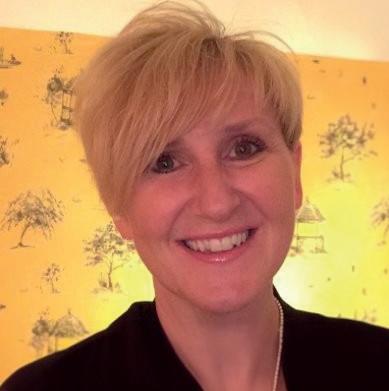
At the Universities and Colleges Admissions Service (UCAS), our dedication to equality and inclusion goes beyond our purpose and commitment to prospective students; it extends to our own colleagues. It is woven into the fabric of who we are and what we do, aiming to create a true feeling of belonging. We recognise that a diverse and inclusive workplace is not just a moral imperative; it’s essential for driving innovation, creativity and overall success.
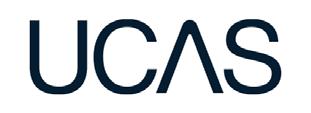

Value of diverse abilities and identities
Diversity isn’t just a buzzword, it’s a source of strength. We celebrate the unique perspectives, backgrounds and experiences that colleagues bring to our organisation. From different cultures and generations to the various life experiences and gender identities, we believe that a diverse workforce enriches our organisation. We strive to create an environment that encourages
a sense of belonging for all through an experience that puts its people first. Over 90% of our colleagues are proud to work for us, with 88% stating it’s a great place to work.
Caring,
connected experience at work
Creating an inclusive workplace means that every colleague feels valued and respected for who they are. Actively promoting an inclusive culture, open dialogue, respect, trust and empathy are at the core of our interactions. This culture is underpinned by the right policies, initiatives and best practices to ensure we are progressing in our diversity, equity and inclusion (EDI) journey in an accountable and transparent manner. With one of our core values being ‘inclusive,’ we are dedicated to the wellbeing and professional progression of our colleagues. We provide access to mental health resources, support networks and flexible working arrangements to accommodate the diverse needs of our team members. We enable colleagues to work in a way that
Maximising resources to do good
Our goal is to achieve a truly diverse organisation that becomes a representation of those we support and guide to discover their future. We leverage our position, working in partnership with charities and other sector organisations. We create practical and inspiring information, with advice and resources for underrepresented groups. Additionally, we produce reports to inform public debate that focuses on widening access and participation.
So far in 2023, we have been able to encourage over 74,000 UK 18-year-olds to share their individual circumstances — such as care responsibilities, declaring themselves a refugee or asylum seeker, being a parent or estranged from their own parents. By using our platform for change, this information helps to inform how higher education can take action to become more inclusive by widening participation that will impact the future workplace. By fostering inclusivity and belonging, UCAS has a direct impact across the UK.
12 MEDIAPLANET A PROMOTIONAL SUPPLEMENT DISTRIBUTED ON BEHALF OF MEDIAPLANET, WHICH TAKES SOLE RESPONSIBILITY FOR ITS CONTENTS READ MORE AT BUSINESSANDINDUSTRY.CO.UK
Find out more at ucas.com Paid for by UCAS























 Non-Executive Director, HS2 Ltd
Non-Executive Director, HS2 Ltd
























